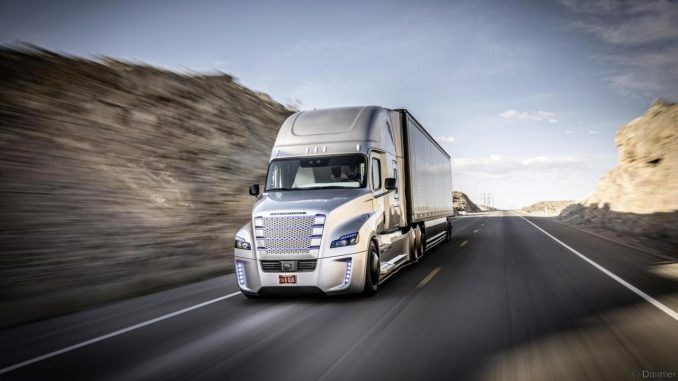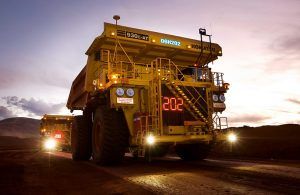
Truck drivers could lose their jobs to robots over the next decade.
Over a million truck drivers could soon be out of work as self driving vehicles start taking over the roads
The rise of automation and the impact AI software and robots will have on the global workforce is increasingly on the minds of both economic analysts and everyday citizens.
Anti-Media reports:

BYPASS THE CENSORS
Sign up to get unfiltered news delivered straight to your inbox.
You can unsubscribe any time. By subscribing you agree to our Terms of Use
Automation stands to fleece 80 million American jobs in the next 10 to 20 years. One of the staples of the American workforce, the trucking industry, could be the next to see the impact of this new economic game changer. New forecasts indicate that over the next ten years, 1.7 million trucker drivers could lose their jobs to robots.
Analysts say that within the next decade, giant automakers and ridesharing companies will easily be able to replace their human employees with driverless trucks. If this happens, it will eliminate one of the only remaining middle-class jobsthat does not require a college degree.
The likelihood of this happening is greater than one might think. Earlier this month, Uber announced it would be testing driverless cars in Pittsburgh. The ride-sharing company said its beta rollout would include humans behind the wheel in a supervising capacity. Many took this news as an anomaly, assuming the technology is still far from being utilized. The reality is, autonomous cars are actually closer than you may think from hitting the roadways. It seems integration and monetization are the major unknown factors that remain.
Uber CEO Travis Kalanick believes driverless cars won’t destroy jobs so much as replace them with new jobs. The only examples he gives to support this claim are that people will be necessary for “maintaining the fleet” and assisting with dangerous road conditions. However, in the same statement, he projected some bleak numbers:
“I can imagine 50,000 to 100,000 drivers, human drivers, alongside a million car network.”
This would suggest one human driver for every 10 vehicles in a fleet. This means major job losses, and it would seem the trucking industry is going to be the first to sustain these losses. Stanford analyst and lecturer, Jerry Kaplan, explains why.
“We are going to see a wave and an acceleration in automation, and it will affect job markets,” says Kaplan. “Long-haul truck driving is a great example, where there isn’t much judgment involved and it’s a fairly controlled environment.”
Taxis, buses, and delivery vehicles — which account for another 1.7 million jobs — will likely be in next in line, along with ride-sharing drivers.
Such prognostications are spurring some to question whether America will have to implement a Universal Basic Income (UBI) in order to protect people who lose their jobs to robots.
By Jake Anderson / Anti-Media



